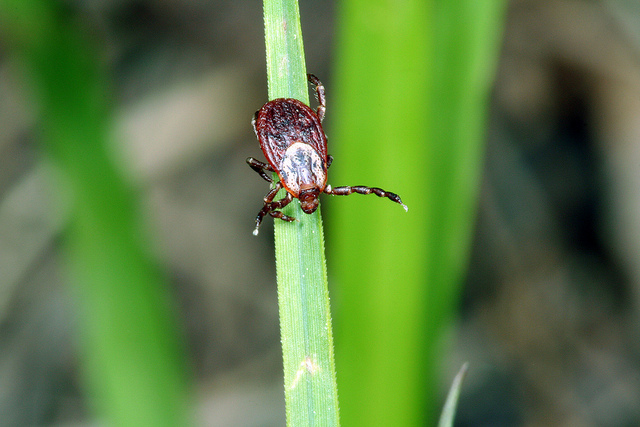What’s Lyme disease, you say? If you’re like me, the first thought that probably comes to mind is a disease you contract from eating limes. If you believe that, your brain may truly be turning sour. But all jokes aside, Lyme disease can be serious if left untreated.
Lyme disease occurs when an infected black-legged tick bites and passes on a species of bacteria called Borrelia burgdorferi. A bacterial infection will likely commence if the tick stays attached to your skin for 36 to 48 hours. You’re more likely to contract Lyme disease in grassy and forest-like areas because black-legged ticks thrive in those environments. During the summertime, people are at higher risk of infection because they’re more likely to travel to or hike in those types of areas.
Image Source: Robert Trevis-Smith
Symptoms of Lyme disease can vary depending on the stage of infection. Within a month after the tick bite, a skin rash called erythema migrans will most likely develop. This rash usually appears as an expanding red area with a bull’s-eye pattern but may not be itchy or painful. In addition to a rash, flu-like symptoms can occur such as body aches and fever. If Lyme disease is left untreated, in the subsequent weeks or months, it can cause joint pain and affect some of the organs such as the brain and heart.
Treatment for Lyme disease involves taking antibiotics such as doxycycline or amoxicillin. The earlier the treatment is after the infection, the higher the probability is of a fast and complete recovery. If possible, avoid grassy and wooded areas, where black-legged ticks are more likely to live. If you are in those areas, you should cover up your body by wearing long pants, long sleeves, or gloves. In addition, a good idea is to use insect repellent to ward off ticks. Ultimately, if a tick does bite you, remember to stay cautious and be on the lookout for symptoms. If you think you’ve contracted Lyme disease, go see your doctor, because earlier diagnosis is always better than later.
Feature Image Source: Tick Reaching Out by psychmike










